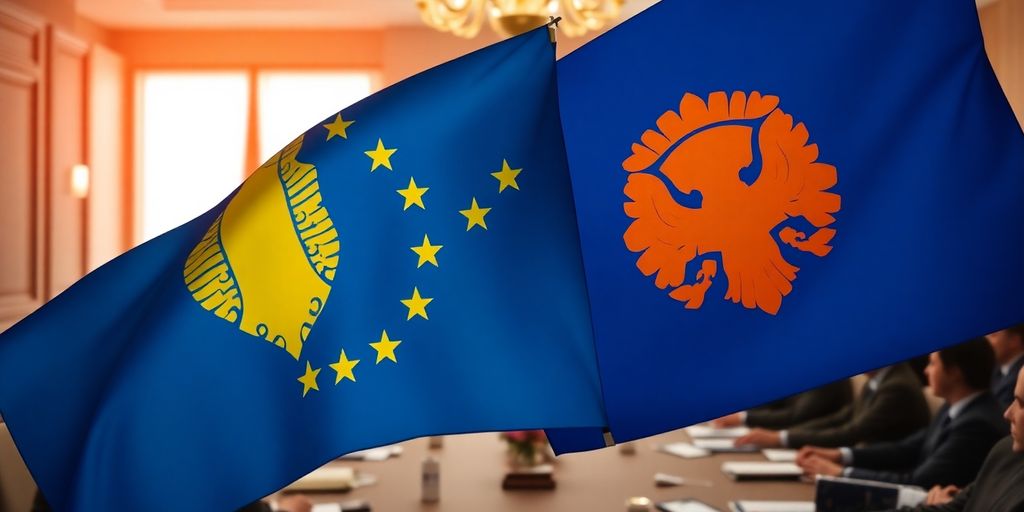The European Union has announced a gradual easing of sanctions imposed on Kosovo, a move that comes amid ongoing political stalemate in the country. The sanctions were initially enacted in response to rising tensions in the Serb-majority north, where Prime Minister Albin Kurti’s government has faced criticism for its handling of ethnic relations.
Key Takeaways
- The EU has begun to lift sanctions on Kosovo, contingent on de-escalation of violence.
- Political parties in Kosovo are urged to resolve their disputes to form a new government.
- The sanctions had previously cut at least 150 million euros in funding, impacting development projects.
Background of the Sanctions
In June 2023, the EU imposed economic sanctions on Kosovo due to escalating tensions in the northern regions, where ethnic Serbs have resisted the authority of the Albanian-led government. The sanctions included significant cuts to funding, which have adversely affected various development projects across the country.
The sanctions were a response to actions taken by Prime Minister Kurti, who sought to extend government control in the north, leading to increased ethnic tensions. The EU’s foreign affairs chief, Kaja Kallas, emphasized that the lifting of sanctions would depend on Kosovo’s commitment to maintaining peace and stability in the region.
Current Political Landscape
Kosovo is currently experiencing a political deadlock following inconclusive elections held in February 2025. Kurti’s party, Vetevendosje, won the most votes but failed to secure a majority, leading to difficulties in forming a coalition government. The inability to elect a parliamentary speaker has stalled the legislative process, further complicating Kosovo’s aspirations for EU membership.
- Political Impasse: The parliament has failed to elect a speaker multiple times, reflecting deep divisions among political parties.
- Potential for Snap Elections: If the deadlock continues, Kosovo may face the prospect of new elections, which could reshape the political landscape.
EU’s Position and Future Prospects
Kallas, during her visit to Pristina, urged Kosovo’s political leaders to prioritize the formation of a functional government. She highlighted the importance of establishing stable institutions to access the EU’s Growth Plan for the Western Balkans, which includes nearly 6 billion euros in funding aimed at fostering economic development in the region.
The EU’s willingness to lift sanctions signals a potential thaw in relations, provided that Kosovo demonstrates a commitment to resolving its internal conflicts and normalizing relations with Serbia. Both countries are on a path toward EU membership, but progress hinges on their ability to cooperate and address longstanding issues.
Conclusion
The easing of sanctions by the EU represents a critical opportunity for Kosovo to stabilize its political environment and enhance its economic prospects. However, the path forward remains fraught with challenges as political leaders must navigate their differences and work towards a unified government. The international community continues to watch closely, as the resolution of Kosovo’s political crisis will have significant implications for its future and its relationship with the EU.
Sources
- EU says it has begun to ease sanctions on Kosovo, Reuters.
- EU Has Begun Lifting Measures Imposed on Kosovo, Kallas Says, Bloomberg.com.
- Kosovo feels the pain of EU sanctions as election looms, Reuters.
- Kosovo risks post-election deadlock as parties rule out coalition, Reuters.
- Kosovo’s Political Crisis: President Osmani Considers Constitutional Court Intervention, BalkanEU.





